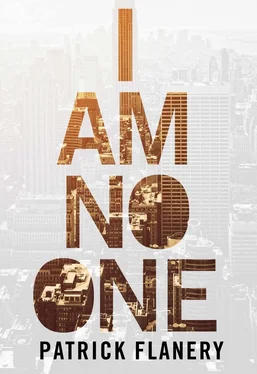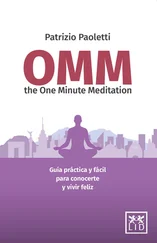They tried to reassure me, Meredith and Peter, and by the time it was two in the morning we were all struggling to stay awake and Meredith went in search of something I could wear to bed, returning after a few minutes with a pair of pajamas that had never been worn, as well as a brand-new bamboo toothbrush, still in its packaging, and a razor.
‘Were you expecting me to stay?’
‘We’re prepared for just about any eventuality. Security to the power of ten.’
‘Or more.’
‘Probably a great deal more.’
I wondered whether the guest bedrooms were always made up, or if Meredith had anticipated there might be last-minute guests and had asked the housekeeper, a Dominican woman, to put on clean sheets and set out fresh towels. There was reassurance in taking off my clothes and putting on new pajamas, particularly ones of such lovely quality— lovely , not very American, it’s true, but I can’t get rid of it, nice tastes like Wonder Bread on my tongue — and then sliding in between those high thread-count sheets and pulling the duvet up around my chin, looking out at the lights across the park and knowing my daughter is in such a position that I need never worry about my own security for the rest of my life. This had happened in a way I could not have predicted and with such speed it sometimes threatened to destabilize my sense of our relationship. She was not yet thirty, hardly out of childhood it seemed, and yet she was also a fully functioning adult with a career, with her own business, and with a husband who is one of the most influential men in America, and all of this at such a young age! Youth has somehow effected a bloodless revolution and it is foolish, I know, to imagine that the young people of America are not ultimately in charge. That night I could go to sleep confident that if I woke the next morning and remembered nothing of the previous days or weeks, or had forgotten the sum total of my adult life, then Meredith and Peter would look after me. I would be shipped off to the top facility on the East Coast and until my death I would be contained and cared for, never having to worry if I might end up wandering the sewers of New York City or sleeping in the Amtrak tunnels in which I remember once seeing informal encampments on the way to visit my mother upstate. Whatever happens, I will not be one of the destitute fated to fall off the grid, no matter how much a part of me might now wish that were possible.
The following day, Sunday, we were slow to get up, but when we finally convened, a little after ten that morning, the housekeeper had already made waffles and there was a bowl of fruit salad and hot coffee and The New York Times , satisfyingly thick, all laid out on the white marble kitchen counter. I could see almost at once, however, that Meredith and Peter had been talking and there was something they needed to say, as if they had — this turned out to be the case — made a decision about me in the hours following my confession of the unexplainable lacuna in my memory, or so it then seemed.
They waited until we were alone in the kitchen, in the glassed-in breakfast area overlooking the park. It was not the first time I had stayed with them, but I could see how the longer they lived together they were settling into a pattern of routinized comfort that suggested a pursuit of the ideal, of the best possible way of drinking coffee and eating breakfast and enjoying the beauty of their view, not to mention the beauty of each other. They are, without question, a stunning young couple whose attractiveness is not about youth alone, but about the way they wear that privilege of age without worry, or with worries always mediated by the knowledge that security will, barring a revolution, be permanently theirs.
‘We’ve been talking, and we’d like to arrange for you to see a really great doctor.’
‘My dad has been to see her, Jeremy. She’s one of the top memory specialists in the city.’
‘So you do think there’s a problem with me?’
‘No, Dad, honestly, neither of us has noticed anything. We just think—’
‘Isn’t it better to rule out the possibility of anything actually being wrong, Jeremy? Wouldn’t you rather know, and catch it at an early stage, instead of living with the uncertainty and the worry?’
They both sounded sincere. Sincerity is not one of their failings.
‘Of course you’re right.’
‘Can I make you an appointment for this week? I’m sure we could get you in before Thanksgiving.’
True to his word, Peter arranged an appointment for Monday, when I had no classes and no commitments other than the rescheduled 4pm meeting in my office with Rachel. I was grateful to Peter for leveraging his influence, and I hope, even still, after all that has happened since that week when I first became conscious of the strange changes pressing against the trajectory of my life, that I demonstrated sufficient gratitude for his assistance.
After brunch I went home. Meredith offered to send me in a car and for once I accepted because I was still feeling tired from the late night and I wanted to indulge, if only for another half-hour or so, in the knowledge that someone was looking after me. How different my life would be if I had remained in Britain, if I had not sold that house on Divinity Road but continued to live there in my slightly cramped if comfortable way, making the occasional excursion to some European city and leading what was in many ways a very un-English life, or at least a life not representative of the constricted lives so many people in Britain suffer. Not that I have more space in my NYU apartment, slightly less in fact, and no garden just outside the dining room, but nor do I have the sense of vertiginous insecurity that sometimes came over me in Oxford when I was lying alone in bed and wondering whether the house was locked. In New York, as a white man of a certain age and class, I have tended to feel secure, despite the city’s unpredictability and its problems with police corruption and crime and terror, though Oxford was not immune from terror either, or at least from those who would seek to spread the contagion of terror even to the sleepier corners of the world.
Riding in the back of the black town car down Seventh Avenue, I thought of a Syrian doctoral student who arrived in Oxford almost at the same time as me, and I think of him now, wondering if my brief association with him might have been a foretaste of what was to come. The young man made odd threats against me and my colleagues, demanding special treatment for no better reason than because he had recently been working for Syria’s mission at the United Nations in New York. When his demands were rebuffed he threatened the entire department. At first no one took it seriously, but when the threats escalated I reported the young man to the terrorist hotline that Britain had then set up and within a few days he disappeared and no more was heard of him.
I did not then and still do not regret what I did, and the fact that he disappeared suggests to me I was not mistaken in reporting him to the authorities. It occurs to me now how easily a single tip-off, a phone call lasting no more than five minutes, might change the course of a stranger’s life. Am I, I wonder, any different from the ordinary East Germans who turned themselves into informers for the Stasi? I assumed the young Syrian was a threat but had no evidence other than my suspicions and fears. I remember now that he said something to me along the lines of, ‘things are going to change around here. You’ll see who really runs the show.’ It was perhaps nothing more than a young man’s boast. In fact it sounds, thinking about it once more, like little more than ill-advised swagger, the sort of threat someone who has been on the receiving end of an authoritarian boss might then turn around and use against the next weak person he or she encounters — the kind of boast I can imagine I myself could have made to a senior colleague at Columbia, much to my regret. Perhaps there was nothing suspicious about that young Syrian, but the British security services must have thought otherwise, since he disappeared. It is possible, I suppose, that he was not detained but simply chose to leave. His face came back to me that Sunday as we turned onto Bleecker and suddenly a group of young Middle Eastern men surrounded the car as they crossed the street. I had more or less inoculated myself against seeing threat in a brown face during my years in Oxford, particularly after buying the house on Divinity Road, which required, for the fastest possible commute to my College, walking along the Cowley Road where so many Pakistanis and people from elsewhere in the Muslim world have shops and make their homes, as well as go to worship. From my back garden I could see the dome and white spire of the Central Oxford Mosque and on more than one occasion had to listen to the music of a party in some neighboring garden, melodies and rhythms such that I fancied I might as well have been in Lahore or Istanbul. No, living in Oxford in the immediate aftermath of the attacks on New York and Washington was like having immersion therapy by exposure to the thing one fears most.
Читать дальше












